Technology
The real scars of Korean gaming
TO SEE VIDEO:
- 8 hours ago
- Technology
In a quiet room full of the glistening trophies he's won, Lee Young-ho rolled up the right sleeve on his grey jumper.
A scar, half an inch wide, stretched from just above the elbow and up over his shoulder.
"Our company paid for full medical expenses, so he had an operation," explained his coach, Kang Doh Kyung.
"[He] is the best player in StarCraft and has won everything in this field and is still going strong."
Repetitive strain had injured Mr Lee's muscles, deforming them and making surgery the only option to save his illustrious career.
Holding his arm out so I could have a proper gawp, Mr Lee paused.
"It's like a badge of honour," he said.
It seemed like the confirmation I'd been expecting - that gaming in South Korea had reached a dangerous place, where professionals and amateurs alike were destroying their lives and their bodies.
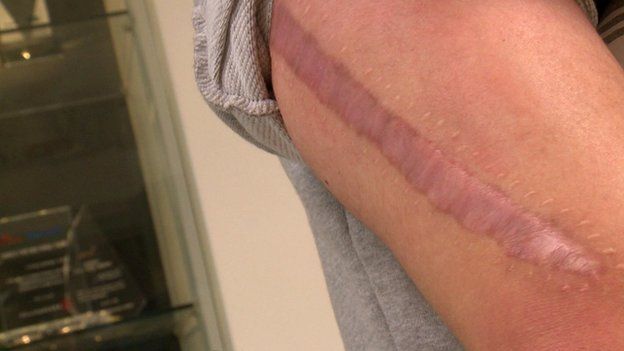
But Mr Kang sees it very differently. They're athletes, he argues, and injuries happen.
One of his colleagues later suggested that if I'd been interviewing the world's most-decorated marathon champion, I wouldn't be surprised if they had damaged knees.
Nor would I suggest a footballer needing surgery was "too far", the phrase I'd used to describe Mr Lee's arm.
He had a point.
Tap-tap-tap-tap
Professional gaming - e-sport - is a huge deal in South Korea. There's a government department dedicated to its development.
These gamers are like professional footballers, their matches broadcast - on TV and online - in English as well as Korean.
The best earn hundreds of thousands of pounds every year: a mixture of salaries, prize money and sponsorship deals.
Mr Lee is a Starcraft player for KT Rolster, one of South Korea's bigger teams. The scar is a result of being at the top of his game for 10 years.

Read more stories from the South Korea Direct season:

On the day I visited, KT Rolster's Starcraft players were training hard to be just like Mr Lee.
The noise of their practice produced an almost hypnotic tap-tap-tap-tap backing track in a room which resembled the kind of place you'd be subjected to when sitting a computer-based exam.
Each PC in its own cubicle, gamers with their headphones on, the room screamed "do not disturb".
The difference here is that these cubicles feel lived in. Family pictures, the remains of snacks, and the odd toothbrush. And then there's the gifts. A lot of gifts.
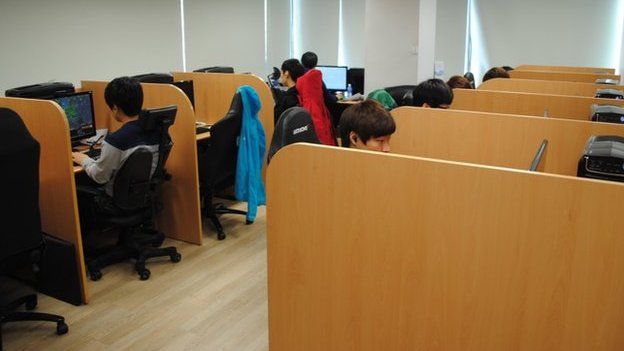
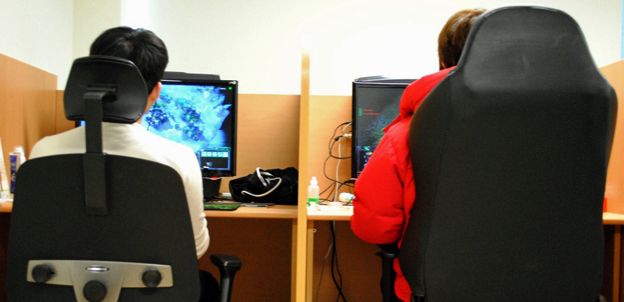
The professional gamers are overwhelmingly male, but their most-obsessive fans are female, lavishing the boys with the kind of attention otherwise reserved for the singing K-Pop stars, the country's other booming entertainment export.
But unlike the fad of Gangnam Style, e-sports is something South Korea feels it can bring to the world.
"I believe that e-sport has plenty of potential [to be regarded as a proper sport], although perhaps not as much as physical games," Mr Kang said.
"E-sports is in the process of becoming a mental sport like chess."
'They're adorable'
Down the hallway - and past a room filled with bottles of "sports" drink Pocari Sweat, another sponsor - I found the training room for KT Rolster's League of Legends team.
League of Legends - LoL - is arguably the biggest of the e-sports titles and is all about teamwork and group strategy.
The team here joked about going out and drinking beer - and teased about who got the most, and the least, gifts.

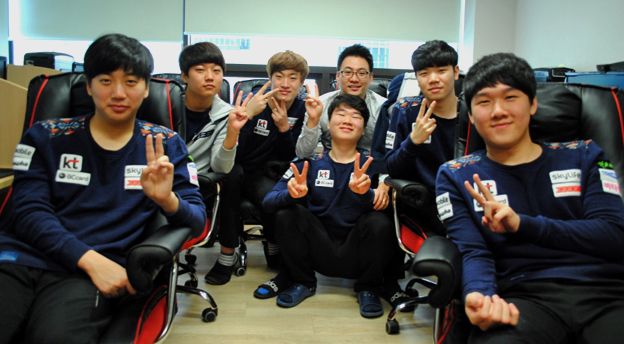
As well as training together, the teams live together in some digs a short walk from the training office.
I'd expected a room full of gadgets and other technology. These are big gamers, after all. But no - aside from a TV, there was very little in the way of gaming entertainment.
Here, their charming housekeeper holds fort, and does what she can to keep the team healthy.
"They spend most of their time sitting with little exercise," she said, while washing up, "so I wanted to avoid cooking high-calorie foods, but they love naughty foods like that."
She loves them, she told me. "They're adorable."
All-night addiction
At the top-end of gaming, the players are undeniably well looked after, healthy and happy - even if the gruelling routine means they clearly don't enjoy playing anymore. It's work.
But for the non-professional, the impact heavy gaming is having on the health and social lives of young Koreans is of great concern to many.
After visiting KT Rolster, I went to another part of Seoul to visit what is known as a PC Bang. They're all over South Korea - internet cafes, essentially, but with high-end gaming PCs. Hundreds of them, in a big room kitted out like a club - with its own bar. It's open 24 hours a day.
There have been numerous instances where gamers have died in these PC Bangs. They are rare, but make global headlines.
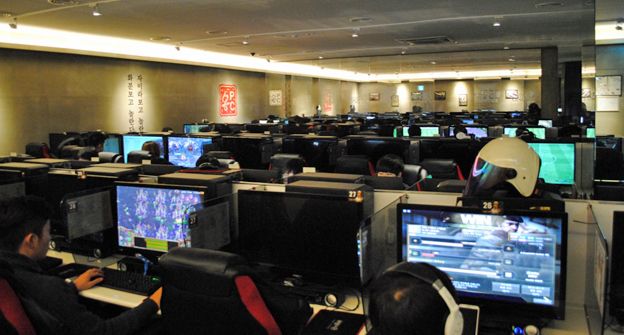
South Korea has made numerous attempts to curb the amount of online gaming its young are playing. In 2011, it passed the Shutdown Law - dubbed the Cinderella Law - which prevented children aged 16 or below from playing online games between 10:30pm and 6:00am.
The rules were later amended to allow parents to make their own choice about when gaming access should be curtailed in the home.
The country is the world leader in treatment for all sorts of technology dependency, but gaming is, by far, the most common issue. It's one that has parents literally dragging their children to addiction centres set up all over South Korea.
At KT Rolster, coach Mr Kang is responsible for looking after his team's wellbeing - but he also recognised the negativity around hardcore gaming.
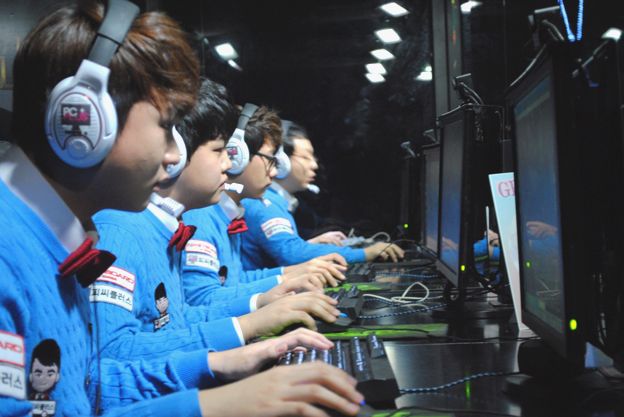
"When people immerse themselves in something and become addicted to it, then they can cross the line.
"Our bodies might be very tired or in poor condition. These things happen not only while playing games. Even when people work out, some people can have a heart attack."
He stopped, keen to move on from what he saw as a predictable, perhaps tedious, line of questioning.
During my time with KT Rolster my point of view flip-flopped between seeing gaming as either serious business, or a serious problem.
With the relentless tap-tap-tap of keyboards still echoing in my ears, I came to the only reasonable conclusion I could: it's both.









No comments:
Post a Comment
Please leave a comment-- or suggestions, particularly of topics and places you'd like to see covered